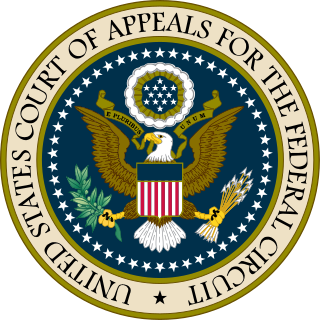Liggett Group, formerly known as Liggett & Myers Tobacco Company, is the fourth largest tobacco company in the United States. Its headquarters are located in Durham, North Carolina, though its manufacturing facility is 30 miles to the west in Mebane, North Carolina. The company is a subsidiary of holding company Vector Group.
The Securities Litigation Uniform Standards Act of 1998 (SLUSA), Pub. L. 105–353 (text)(PDF), 112 Stat. 3227, is a federal legislative act in the United States regarding private class action lawsuits for securities fraud. SLUSA amended portions of the Securities Act of 1933 and the Securities Exchange Act of 1934 to preempt certain class actions that alleged fraud under state law "in connection with the purchase or sale" of securities. Such lawsuits cannot be filed in state or federal court.
Aetna Health Inc. v. Davila, 542 U.S. 200 (2004), was a United States Supreme Court case in which the Court limited the scope of the Texas Healthcare Liability Act (THCLA). The effective result of this decision was that the THCLA, which held Case Management and Utilization Review decisions by Managed Care entities like CIGNA and Aetna to a legal duty of care according to the laws of The State of Texas could not be enforced in the case of Health Benefit plans provided through private employers, because the Texas statute allowed compensatory or punitive damages to redress losses or deter future transgressions, which were not available under ERISA § 1132. The ruling still allows the State of Texas to enforce the THCLA in the case of Government-sponsored (Medicare, Medicaid, Federal, State, Municipal Employee, etc., Church-sponsored, or Individual Health Plan Policies, which are saved from preemption by ERISA. The history that allows these Private and Self-Pay Insurance to be saved dates to the "Interstate Commerce" power that was given the federal Government by the Supreme Court. ERISA, enacted in 1974, relied on the "Interstate Commerce" rule to allow federal jurisdiction over private employers, based on the need of private employers to follow a single set of paperwork and rules for pensions and other employee benefit plans where employers had employees in multiple states. Except for private employer plans, insurance can be regulated by the individual states, and Managed Care entities making medical decisions can be held accountable for those decisions if negligence is involved, as allowed by the Texas Healthcare Liability Act.
Wyeth v. Levine, 555 U.S. 555 (2009), is a United States Supreme Court case holding that Federal regulatory approval of a medication does not shield the manufacturer from liability under state law.

Cipollone v. Liggett Group, Inc., 505 U.S. 504 (1992), was a United States Supreme Court case. In a split opinion, the Court held that the Surgeon General's warning did not preclude lawsuits by smokers against tobacco companies on the basis of several claims. The case examined whether tobacco companies could be liable for not warning the consumer "adequately" of the dangers of cigarettes as well as ultimately held the stance that smoking was in fact a free choice. The ruling also questioned the Cigarette Labeling and Advertising Act of 1965 to determine whether the warning labels on the cigarette products by law had to be less or more alarming than the warning issued.

Tobacco politics refers to the politics surrounding the use and distribution of tobacco.

The Family Smoking Prevention and Tobacco Control Act, is a federal statute in the United States that was signed into law by President Barack Obama on June 22, 2009. The Act gives the Food and Drug Administration the power to regulate the tobacco industry. A signature element of the law imposes new warnings and labels on tobacco packaging and their advertisements, with the goal of discouraging minors and young adults from smoking. The Act also bans flavored cigarettes, places limits on the advertising of tobacco products to minors and requires tobacco companies to seek FDA approval for new tobacco products.
In the law of the United States, federal preemption is the invalidation of a U.S. state law that conflicts with federal law.
Bates v. Dow Agrosciences LLC, 544 U.S. 431 (2005), was a case in which the Supreme Court of the United States held that the Federal Insecticide, Fungicide, and Rodenticide Act (FIFRA) did not preempt state law claims, brought by a group of Texas farmers, alleging that one of Dow's pesticides damaged their peanut crop.
Rice v. Norman Williams Co., 458 U.S. 654 (1982), was a decision of the U.S. Supreme Court involving the preemption of state law by the Sherman Act. The Supreme Court held, in a 9–0 decision, that the Sherman Act did not invalidate a California law prohibiting the importing of spirits not authorized by the brand owner.

Regulation of tobacco by the U.S. Food and Drug Administration began in 2009 with the passage of the Family Smoking Prevention and Tobacco Control Act by the United States Congress. With this statute, the Food and Drug Administration (FDA) was given the ability to regulate tobacco products.

Cigarette smoking for weight loss is a weight control method whereby one consumes tobacco, often in the form of cigarettes, to decrease one's appetite. The practice dates to early knowledge of nicotine as an appetite suppressant.

Bowers v. Baystate Technologies, 320 F.3d 1317, was a U.S. Court of Appeals Federal Circuit case involving Harold L. Bowers and Baystate Technologies over patent infringement, copyright infringement, and breach of contract. In the case, the court found that Baystate had breached their contract by reverse engineering Bower's program, something expressly prohibited by a shrink wrap license that Baystate entered into upon purchasing a copy of Bower's software. This case is notable for establishing that license agreements can preempt fair use rights as well as expand the rights of copyright holders beyond those codified in US federal law.
Gade v. National Solid Wastes Management Association, 505 U.S. 88 (1992), is a United States labor law case of the United States Supreme Court. The Court determined that federal Occupational Safety and Health Administration regulations preempted various Illinois provisions for licensing workers who handled hazardous waste materials.

Gordon v. Virtumundo, Inc., 575 F.3d 1040, is a 2009 court opinion in which the United States Court of Appeals for the Ninth Circuit addressed the standing requirements necessary for private plaintiffs to bring suit under the Controlling the Assault of Non-Solicited Pornography and Marketing Act of 2003, or CAN-SPAM Act of 2003, 15 U.S.C. ch. 103, as well as the scope of the CAN-SPAM Act's federal preemption. Prior to this case, the CAN-SPAM Act's standing requirements had not been addressed at the Court of Appeals level, and only the Fourth Circuit had addressed the CAN-SPAM Act's preemptive scope.
Williamson v. Mazda Motor of America, Inc., 562 U.S. 323 (2011), was a decision by the Supreme Court of the United States, in which the Court unanimously held that Federal Motor Vehicle Safety Standard 208, promulgated by the National Highway Traffic Safety Administration, does not federally preempt state tort lawsuits against auto manufacturers from injuries caused by a defective lack of certain types of seat belts.
The misappropriation doctrine is a U.S. legal theory conferring a "quasi-property right" on a person who invests "labor, skill, and money" to create an intangible asset. The right operates against another person "endeavoring to reap where it has not sown" by "misappropriating" the value of the asset. The quoted language and the legal principle come from the decision of the United States Supreme Court in International News Service v. Associated Press, 248 U.S. 215 (1918), also known as INS v. AP or simply the INS case.

Chamber of Commerce v. Brown, 554 U.S. 60 (2008), is a United States labor law case, concerning the scope of federal preemption against state law for labor rights.
United States v. Philip Morris USA, Inc. was a case in which the United States District Court for the District of Columbia held several major tobacco companies liable for violations of the Racketeer Influenced and Corrupt Organization (RICO) Act by engaging in numerous acts of fraud to further a conspiracy to deceive the American public about nicotine addiction and the health effects of cigarettes and environmental tobacco smoke.
Kansas v. Garcia, 589 U.S. ___ (2020), was a case of the United States Supreme Court that was decided, by a 5–4 majority, in 2020. The case concerned whether it was lawful for a State to enforce laws criminalizing the making of fraudulent representations by aliens who were not authorized to work in connection with obtaining a job; the Court held that it was.








